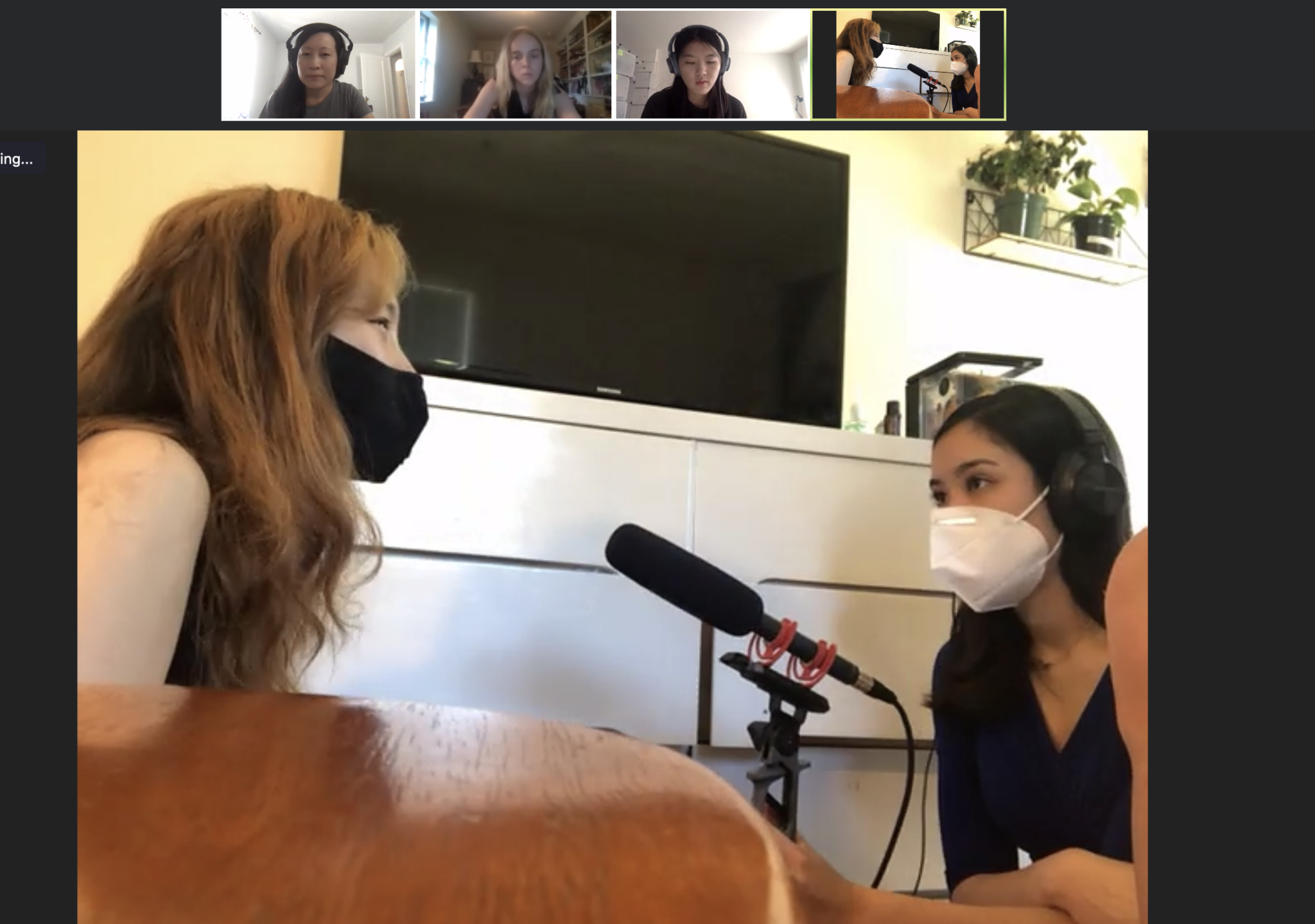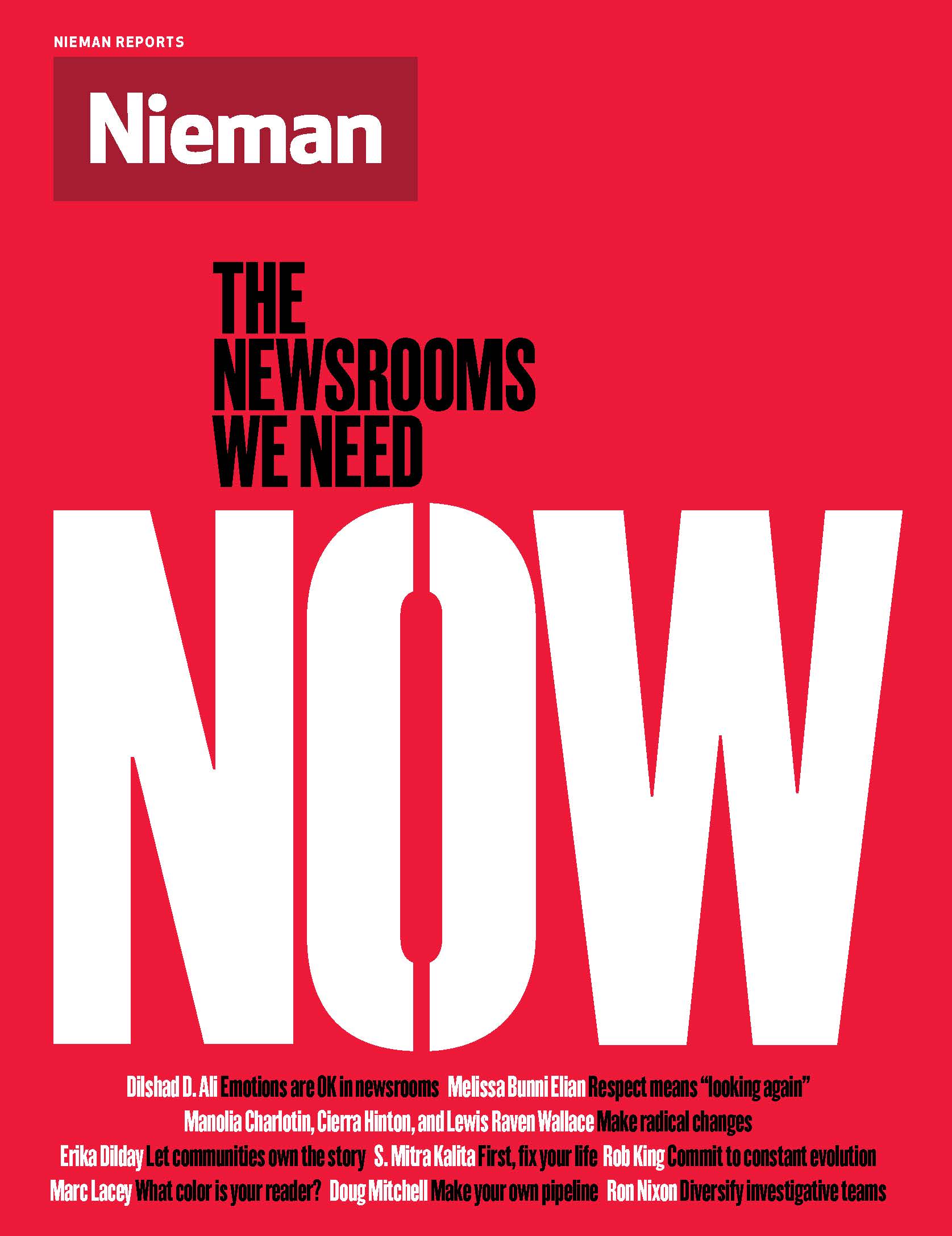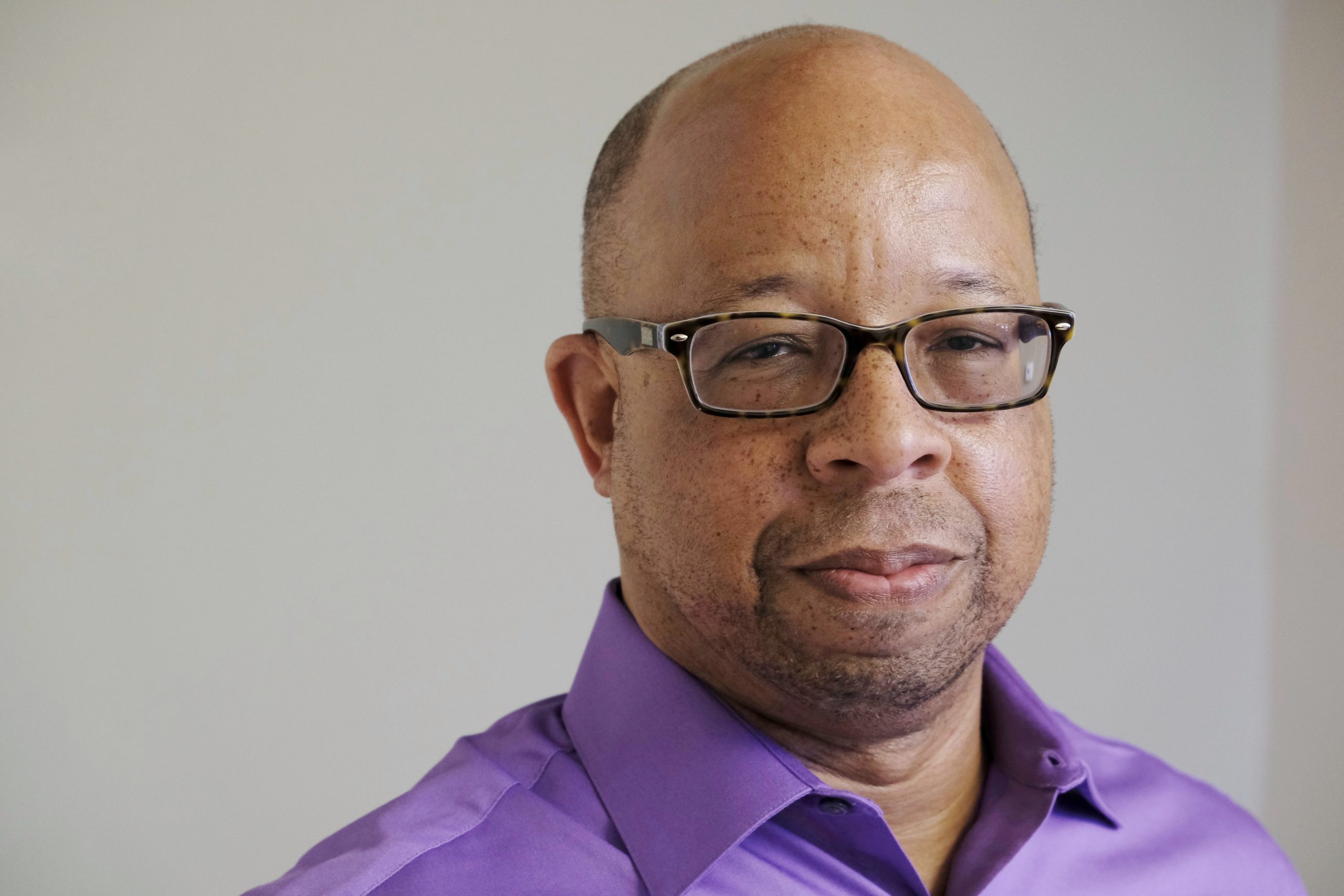
On a video call with (from left at top) Erica Lee, Selena Seay-Reynolds, and Ard Su, Diana Khosrovi (bottom right) interviews Westminister College student Lian Xue about how the coronavirus pandemic affects her status as an international student for a remote Next Generation Radio project
Some years ago, I was turning in my invoice for payment to NPR at the end of a month. I haven’t been a full-time employee at NPR, where I spent 20+ years as a producer and live-show director, since 2008. I was chatting with a colleague when it occurred to me that I’ve never explained my current status: an independent contractor with a set number of hours each year.
I think some of that leads to confusion, as during our conversation, the words “transactional” and “relational” were said. These words helped me better understand the role I play and what I see as a systemic flaw that’s playing a leading role during this period of reckoning (“honesty” my preferred descriptor) in journalism and media.
Some people look at my work founding and directing Next Generation Radio as strictly transactional, meaning, I’m here to find people of color to fill holes in staffing. I don’t entirely agree. And, that’s not how I work.
Journalism and media are tightly focused on what I call transactionalism. Generally, we turn ideas into consumable products. We are trained—willingly, eagerly—to deliver such products to distribution channels on a highly predictable timeline. Our products are stories for digital download and streaming, radio, print and TV. We all accept this, and we work hard to meet those delivery demands, all in the name of journalism, to “feed the beast.” As if this beast is a 19th-century combustion engine that won’t run unless we keep shoveling.
I think this focus on the transactional bleeds over into almost everything we do, and for the most part, this is subconscious. These months at home have made me examine the systems and processes we use and adjust my thinking about our digital media camps, how and why we found our people and what we do that is “post-transactional.”
I think my work has evolved to be mostly relational. Meaning, sure, we find people, but we’re now focused on professional development in hard skills (reporting, interviewing, editing, producing) and soft skills, personal and professional growth, mental health, and building the confidence to add value no matter where you sit at the table. We can call this work “community development.” For the last 20 years—and especially within the previous eight—we have built a small town of alumni and professional journalists who feel they belong to a community of like-minded people and come from a cross-section of very different life experiences. Our “town square” is NextGen.
We—myself and 70+ working journalists and media makers—have been selecting and training rising journalists and creating pathways for them to enter public media, officially beginning in 2000. Since 2013, we have 450+ NextGen alumni, and now professional journalists across non-profit and for-profit media, who have been part of Next Generation Radio. We’ve gone from a series of projects that created a community to a community that produces projects with a fixed lens on inclusivity. 72% of our alumni are women, and about 60% are women of color. Of the 15 to 20 trainees and staff per project, our average is for me and maybe one other to be the only men in the room. Our managing editors and most of our digital producers and editors are women of color.
Who are we? Our alumni include Lee Hill of WNYC; Taylor Allen and Paolo Zialcita of Colorado Public Radio; Stephanie Kuo of PRX; Alejandra Martinez of KERA; DaLyah Jones of the Texas Observer, and Carla Javier of KPCC. Other alumni include Audie Cornish, Shereen Marisol Meraji, Gabriela Saldivia, Nicole Beemsterboer, Jason Fuller and Gus Contreras of NPR. We have 90 or so alumni working in non-profit media in the U.S., and one who hosts a radio program in Santiago, Chile. Yes, I keep a spreadsheet.
NextGen is ALL about creating and maintaining journalism relationships, not executing transactions. I’ve taken to using #WorkDad on social media.
During the past four months, I’ve concluded that NextGen is not meant to be transactional. We’re not the supply store, and I’m not its manager. We’re a collection of people who have a deep affection for telling stories of people and looking for companies, stations, outlets that are interested in our ideas and seeing those ideas through.
Going forward, when you’re looking to hire a journalist of color, this isn’t to say you should stop asking, “Doug, do you know anyone?” I know a lot of people.
But can I suggest you work at changing your script? Ask yourself if YOU know anyone. Seriously. Because, if you don’t, whose fault is that? It’s not mine. And I’m not here to absolve you of that or create a short cut on your behalf.
I am a big fan of the author and dot-com executive Seth Godin. He often writes about the “drip, drip, drip” of slowly and transparently creating quality work and work cultures with cultivated and supported teams. It’s called “the long game.” It’s a commitment to building the relationships needed to broaden the look, feel and sound of your work and workplace.
Daily—yes, every damn day—commit, beyond public statements. Then, you will be seen as far less transactional and more relationally trusted. Drip, drip, drip…
And this is not easy. It’s going to be hard, often frustrating. You might get angry, and you might want to give up. Recent Twitter threads by former and current colleagues, on blast at their previous leaders/workplaces, have shown the difficulty. The product and rapid delivery-based philosophies that guide hiring and promotion in our institutions are highly ingrained.
So, take responsibility and reduce your outsourcing. Make diversity, equality, and inclusion a business imperative. Don’t separate it as if it’s a luxury item or “shiny object” to be deleted when it gets tough out there.
As Seth titled a recent book of his—and it’s one I keep on my desk at NPR—“What to Do When It’s Your Turn. (and It’s Always Your Turn).” Yes, it is.
Doug Mitchell is the founder and director of Next Generation Radio.



